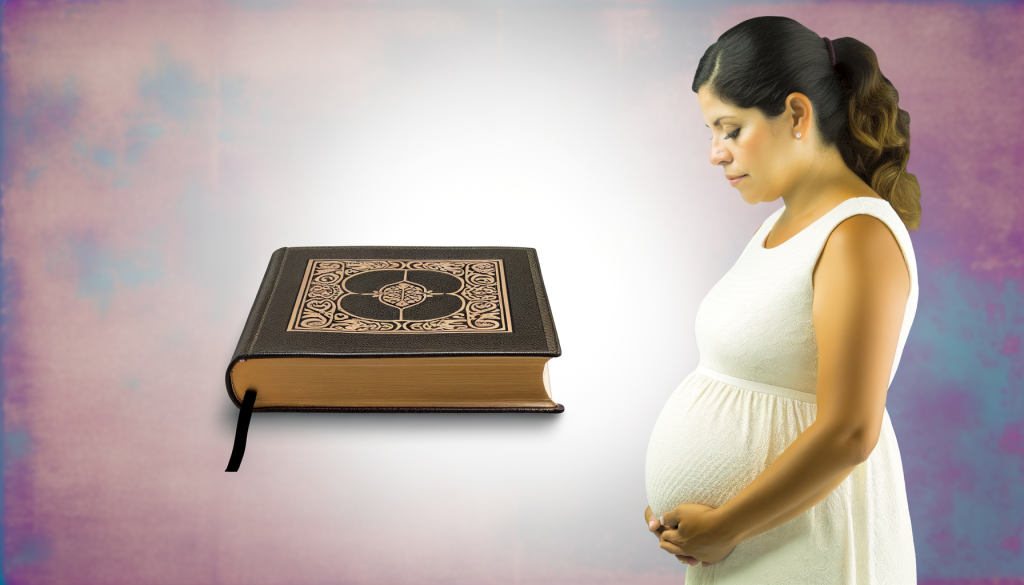Dreams have always held a significant place in biblical narratives, often seen as messages from God or reflections of one’s subconscious fears and desires. Among the various types of dreams, pregnancy dreams are particularly fascinating, symbolizing new beginnings, growth, or sometimes fear of unwanted responsibilities. If you’re wondering about the biblical meaning of pregnancy dreams, this article explores their significance and implications in the context of the Bible.
Understanding Dreams in the Biblical Context
In the Holy Scriptures, dreams are often portrayed as a medium through which God communicates with humans. For instance, Joseph, the son of Jacob, is one of the Bible’s most famous dream interpreters, whose abilities not only foretell future events but also save nations from famine. Similarly, in the New Testament, Joseph, the husband of Mary, receives a dream instructing him to marry her despite her unexplainable pregnancy, showing that dreams often guide individuals towards righteousness and faithfulness.
The concept of pregnancy in dreams, viewed through a biblical lens, can have multiple layers of interpretation. It could symbolize the birth of a new idea, a transformative phase in life, or the beginning of a profound spiritual journey. For example, Isaiah 26:17 likens Israel’s struggle for liberation to a woman struggling to give birth, suggesting that the pains of childbirth in dreams could symbolize the birth pangs of new developments or liberation.
Each biblical instance where dreams play a central role serves to remind us that our dreams might contain messages warranting deeper reflection and consideration. Analyzing them in a biblical context can help believers understand the direction or warnings being communicated.
Symbolism of Pregnancy in Dreams
Pregnancy itself is rich with symbolism. It typically denotes something new: a new life, new possibilities, or new challenges. In biblical terms, dreaming of pregnancy can indicate that the dreamer is or will be involved in a creative process or a period of growth and anticipation.
Consider the story of Elizabeth and Zachariah in the Gospel of Luke. Their inability to conceive was met with miraculous intervention from God, leading to the birth of John the Baptist, a key figure in Christianity. For someone experiencing pregnancy dreams, this could symbolize hope and the promise of fulfillment of God’s plans, regardless of the apparent impossibility or the challenges that lie ahead.
Furthermore, dreams of pregnancy might not always refer to a literal pregnancy. Instead, they can relate to the anticipation of other significant life events or projects. Thus, it’s important to reflect on current life situations or upcoming decisions when trying to interpret these dreams biblically.
Common Themes in Pregnancy Dreams and Their Interpretations
Examining various common scenarios in pregnancy dreams can shed light on their meanings. Dreams about being pregnant with twins, for instance, might suggest that the dreamer is facing a situation with dual possibilities or outcomes. Alternatively, it could indicate a need for balance in some area of the dreamer’s life or the impending arrival of something significant that will bring balance.
Dreams involving difficulties during pregnancy can suggest anxieties about a major project or transition in life. Just as Sarah in the Bible experienced distress during her pregnancy at an advanced age, modern-day dreamers might feel overwhelmed by the “burdens” they carry in their waking life.
On the other hand, experiencing a dream about an easy and effortless pregnancy might imply that the dreamer’s endeavors or new projects will likely progress smoothly without much resistance or trouble, suggesting a time of peace and productivity ahead.
Visual Symbolism in Biblical Pregnancy Dreams

Visually, dreams can be striking, and images often carry rich symbolism. When interpreting pregnancy dreams using biblical references, it’s crucial to note the settings, colors, and emotions experienced during the dream. Each of these elements can provide deeper insight into the dream’s meaning.
For instance, a dream about pregnancy in a lush, thriving garden might be interpreted as a sign of fertility, growth, and prosperity, similar to the Garden of Eden, which represents the perfection and fullness of life before sin. Colors also play a role in interpretation: blues and whites might symbolize purity and spiritual insight, while darker colors might represent fears or unknown facets of the dreamer’s life.
The emotional tone of the dream is equally important. Feelings of joy and anticipation might confirm that the new “birth” will bring happiness and fulfillment, whereas feelings of dread might suggest unresolved anxieties about forthcoming changes or challenges.
Historical and Cultural Influences on Dream Interpretations
The interpretation of dreams, including those about pregnancy, can vary significantly across different cultures and historical contexts. In the ancient Near Eastern context, which surrounds the biblical narrative, dreams were often considered divine messages.



